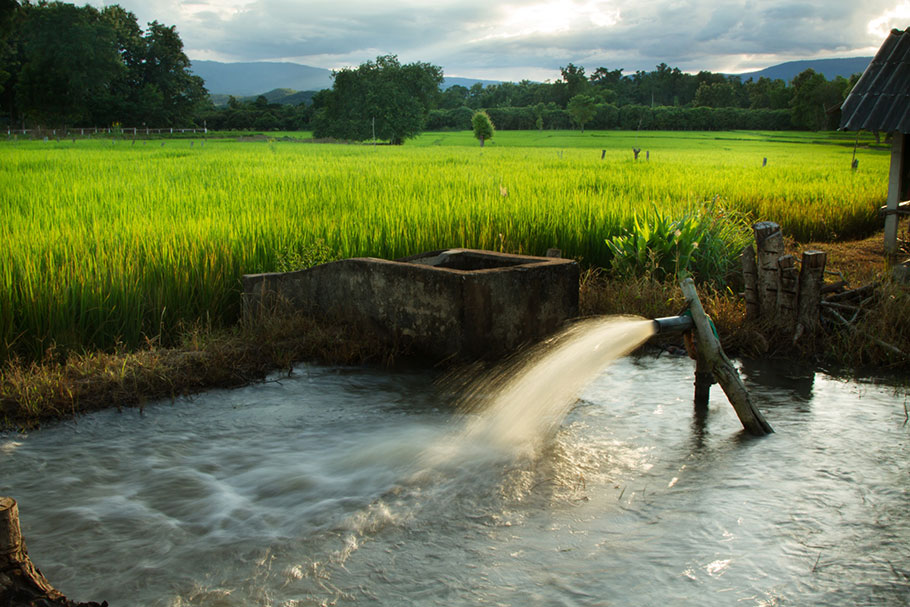
Systems provide effective, less expensive sanitation solutions
Treating wastewater in rural communities can pose a challenge due to insufficient infrastructure. Decentralized wastewater treatment, though, can address challenges that rural communities face, improving sanitation and reducing the environmental and public health effects that come with inadequate wastewater treatment. Here are some of the key benefits that decentralized treatment offers:
Affordable Access to Wastewater Infrastructure
Rural areas have low population densities that do not warrant the installation of extensive sewer networks and large, central treatment plants. Because decentralized plants are located close to the point of use, there is no need for expensive pipelines or trucks to transport sewage to a faraway plant.
Consequently, decentralized wastewater treatment systems tend to have lower upfront costs, making them economically feasible for sparsely populated communities. Additionally, flexible financing solutions, such as leasing or build-own-operate agreements, can alleviate the need for a large initial payment.
Decentralized systems are designed to be easy to transport, set up, and operate, allowing them to be deployed more rapidly than centralized systems. That can address immediate sanitation needs in rural areas.
Compact, Scalable, and Portable
Decentralized wastewater treatment systems tend to have a compact design and small footprint that not only takes up less space, but also reduces the environmental impact and costs associated with groundworks during site development. Their modular design allows them to be easily scaled up or down to accommodate future population changes.
This scalability is particularly beneficial for rural areas experiencing growth or changes in demand. It allows a community to start with a small system to keep costs down but has the flexibility to scale up should the population, and consequently demand, increase. While built to be permanent, the portable nature of decentralized systems allows them to be disassembled and moved if needed.
Lower Environmental Impact and Improved Sustainability
Decentralized package wastewater treatment plants can be customized to the needs of individual communities and the conditions of the surrounding environment. They are more adaptable to variations in topography, soil conditions, and local water quality. These systems can also incorporate innovative technologies that allow wastewater to be recycled for reuse on-site, reducing demand and the environmental impact on natural freshwater sources.

Some decentralized systems allow for the recovery of valuable resources, such as nitrogen and phosphorus, from wastewater. These nutrients can be used to enhance crop growth on agricultural lands, providing an additional benefit to rural communities.
Decentralized systems can incorporate energy-efficient technologies that allow them to operate independently of centralized energy sources, which can be beneficial in remote locations. Shorter transport distances for wastewater and reduced energy consumption also contribute to a smaller environmental footprint. This is particularly relevant in rural areas with limited access to transportation infrastructure.
Improved Water Quality and Regulatory Compliance
Decentralized systems can be designed to meet regulatory requirements for wastewater treatment in rural areas, ensuring that communities adhere to environmental standards. This helps prevent the discharge of inadequately treated effluent into water bodies, contributing to improved water quality and protecting the environment.
Decentralized systems ensure that rural wastewater treatment is not disrupted should a centralized plant malfunction. Having smaller, decentralized plants spread over a broader area minimizes the extent of the impact should one of the plants be hit by a natural disaster.
Community Engagement and Employment Opportunities
Involving local communities in the planning, implementation, and maintenance of decentralized systems fosters a sense of ownership and responsibility. Additionally, the construction, operation, and maintenance of these systems can create local employment opportunities, contributing to economic development.
Decentralized wastewater treatment offers a practical, feasible, and sustainable solution for addressing the sanitation challenges faced by rural communities. By designing systems that consider the specific needs and environmental conditions of these areas, decentralized wastewater treatment provides cost-effective, adaptable, and environmentally friendly solutions.
Contact AUC to learn more about our treatment solutions and the flexible financing options we offer through our Lease Plant Program.

